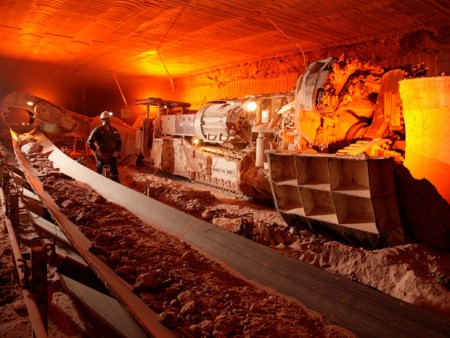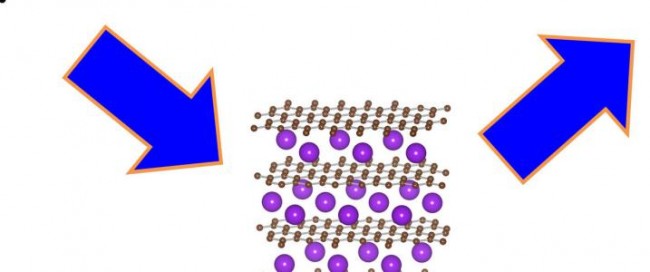October 24, 2015 – Oregon State University researchers have created a potassium-ion battery which has significant advantages over lithium-ion. First, potassium is found in much greater abundance here on Earth than lithium and hence is far cheaper. Second, potassium can work with graphite or soft carbon in the anode of a battery making it far less problematic than lithium. Third, potassium-ion technology is much cleaner than lithium-ion. One of the knocks against lithium-ion is it is difficult and expensive to recycle. Recycled lithium can cost as much as five times the price of new mined lithium. Fourth, lithium largely comes from South America (Brazil, Chile and Bolivia) and is therefore subject to potential supply disruption should any of these countries experience instability. Potassium is the eighth most abundant element here on Earth, found most often in compounds such as potassium chloride. Feldspar in granite is a potassium source. And potash, mined in Saskatchewan (see picture below), is the largest source of mined potassium on the planet. Other potassium producing countries include Germany, the United States, Belarus, Russia, Jordan and Israel. We have known how to separate potassium from compounds since 1807 when Sir Humphry Davy first experimented with electrolysis to produce it in its raw form.
So there is nothing new about potassium other than the fact that the Oregon State researchers have put an old scientific bugbear to bed, that potassium could not be combined with graphite. Xiulei Ji, the lead researcher in the Chemistry Department at Oregon State remarks, “for decades, people have assumed that potassium couldn’t work with graphite or other bulk carbon anodes in a battery….That assumption is incorrect. It’s really shocking that no one ever reported on this issue for 83 years.” The 83 year reference goes back to earlier research in the 1930s that was abandoned.
The implications of a commercial potassium-ion battery are enormous. The abundance of the material makes it a much better candidate for the mass production of rechargeable batteries than lithium. It can approximate the energy density of the latter. It can match the charge and discharge cycles. And it should be a lot cheaper to make.
The university is seeking commercial partners to help turn their laboratory prototype into a finished product. This could prove to be a battery game breaker with implications for mobile devices, automobiles, and residential and commercial utility storage.














[…] Potassium is 800 times more abundant than lithium, cheaper to produce and recycle, and much more commercially accessible. Investors sought. […]